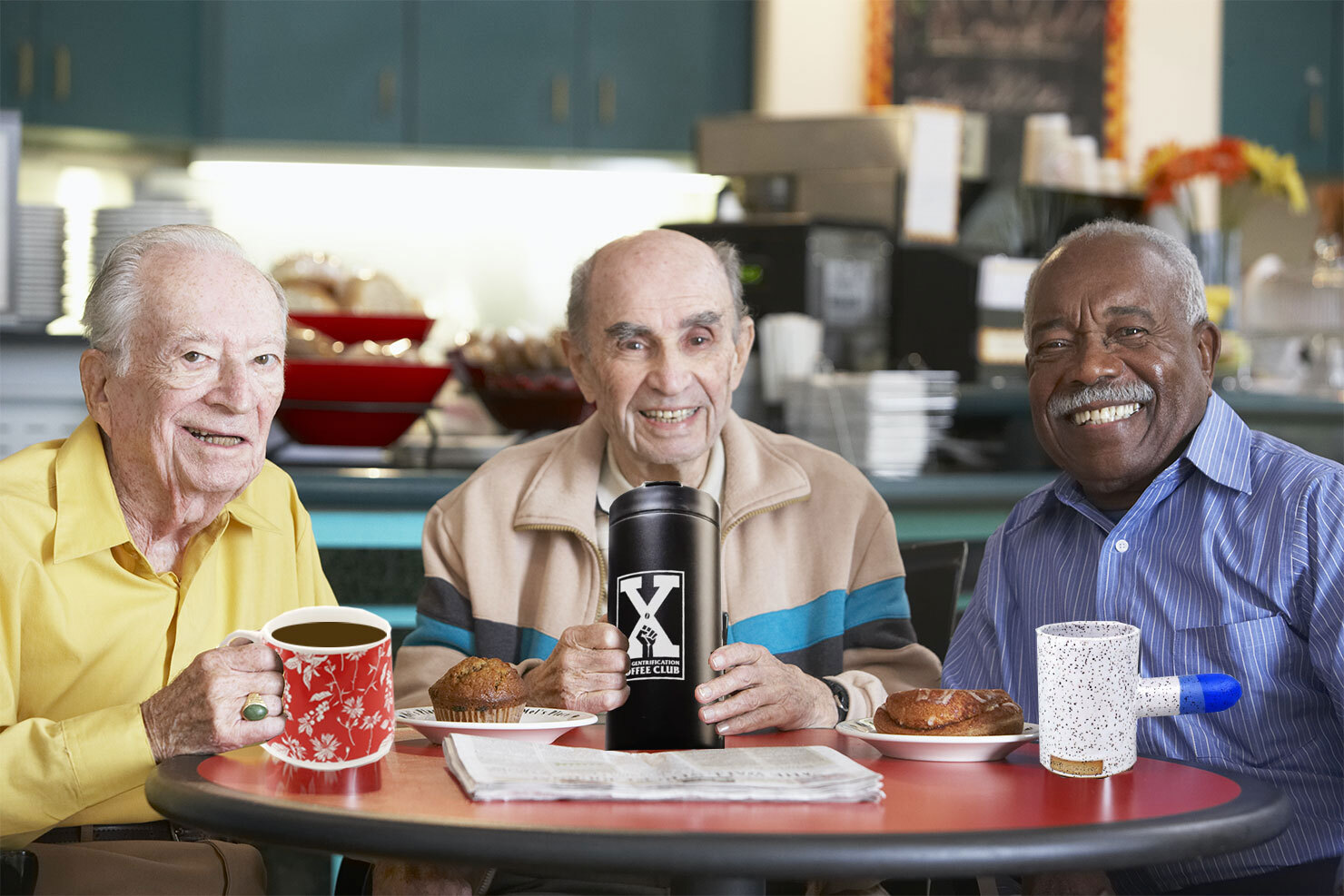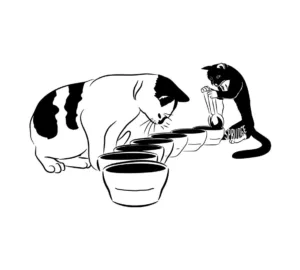We’ve all imagined our golden years, haven’t we? Weekends with grandkids, teaching them the best V60 technique. Winters in Florida sipping iced Red Eyes before hopping onto our Sea-Doos. Nights by the fireside with a cafe coretto and a holographic novel. But is coffee truly a good idea for seniors, or should we be setting our future sights more towards herbal teas and chagaccinos?
Rest assured, experts say that coffee doesn’t have to leave the menu for those of us advancing in age.
“My general gestalt is not going to be surprising—it’s ‘everything in moderation’,” says
Katie Drago, MD-FACP and Assistant Professor of Medicine in general internal medicine and geriatrics at Oregon Health & Science University. Drago says she speaks to her senior patients frequently about coffee consumption in order to address the pros and cons, and she spoke with Sprudge to answer some of those very same questions.
The good news first: coffee may have long-term benefit in preventing cognitive impairment and even cardiovascular disease—as enthusiastic, pro-coffee news stories and studies continue to trumpet. How much faith can we put in the studies? Some, says Dr. Drago.
“There is some evidence based on big population studies that for lifetime coffee drinkers, especialy in moderation, there may be some protective benefit against cognitive impairment later in life,” says Dr. Drago. “It’s an association, not a causation, but these are big population studies, so the association has probably got some real truth behind it.”
Biochemical benefits aside, experts point out that coffee and its associated social rituals can contribute to better emotional and physical health for older folks, many of whom are isolated (especially in the COVID era). And having that structure can be good for seniors, says Drago. “It’s part of their morning routine, it’s part of their social routine, and that has benefit. Particularly as we’re learning about isolation and loneliness in older adults, if there are coffee klatches that peole go to, bridge clubs, or just going down the street and having a cup of coffee at the diner with people who work there,” Drago says—the routine helps.
The bad news? Mostly it’s that if an older person has existing health problems, particularly around cardiovascular or urinary health, too much coffee may make their problems worse, but the jury is still out on conclusive evidence.
“Coffee contains several biologically active substances that may have either beneficial or harmful effects on the cardiovascular system,” says a not very helpful 2008 Italian study on coffee and cardiovascular disease. Drago notes that for longtime coffee drinkers with high blood pressure—”probably the most chronic condition for older adults in terms of population”—there exists evidence that coffee can be a barrier to getting those numbers under better control.
For people with incontinence or issues with urinary tract infections (UTIs), coffee may also pose barriers to relief. Caffeine can irritate the bladder, and also increase the urgency and frequency of need to urinate, compounding problems.
Lastly, coffees’s stimulant properties—perhaps its best superpower besides being delicious—could create indirect problems for seniors by masking fatigue and sleepiness that may be indicators of other health issues. For patients with insomnia or obstructive sleep apnea, coffee consumption “ends up being used as a kind of self treatment to mask the daytime sleepiness, even though that’s the body’s way of saying hey, something’s wrong,” says Drago.
What’s the right amount to drink, then? A Croatian study from 2000 suggests “50-100 mg of caffeine a day” is “well tolerated by a majority of elderly people, who enjoy to meet and chat over a cup of coffee.” Decaf coffee is an option for those who want to continue the ritual if it’s above and beyond what their doctor suggests for caffeine intake—plus, most of the believed health benefits of regular coffee (e.g. beneficial polyphenols and chlorogenics) remain intact after the decaffeination process.
At the end of the day, so to speak, what constitutes an appropriate, moderate amount of coffee for a healthy senior lifestyle varies from person to person, of course.
“When we talk about frailty and fragility in an older age,” says Drago, we ask, “how robust is this person in their element? And that determination of robustness versus fragility, is really the context by which we make a whole lot of clinical recommendations and give advice,” she says, adding, “Age really can be just a number after a certain age.”
Liz Clayton is the associate editor at Sprudge Media Network. Read more Liz Clayton on Sprudge.

































